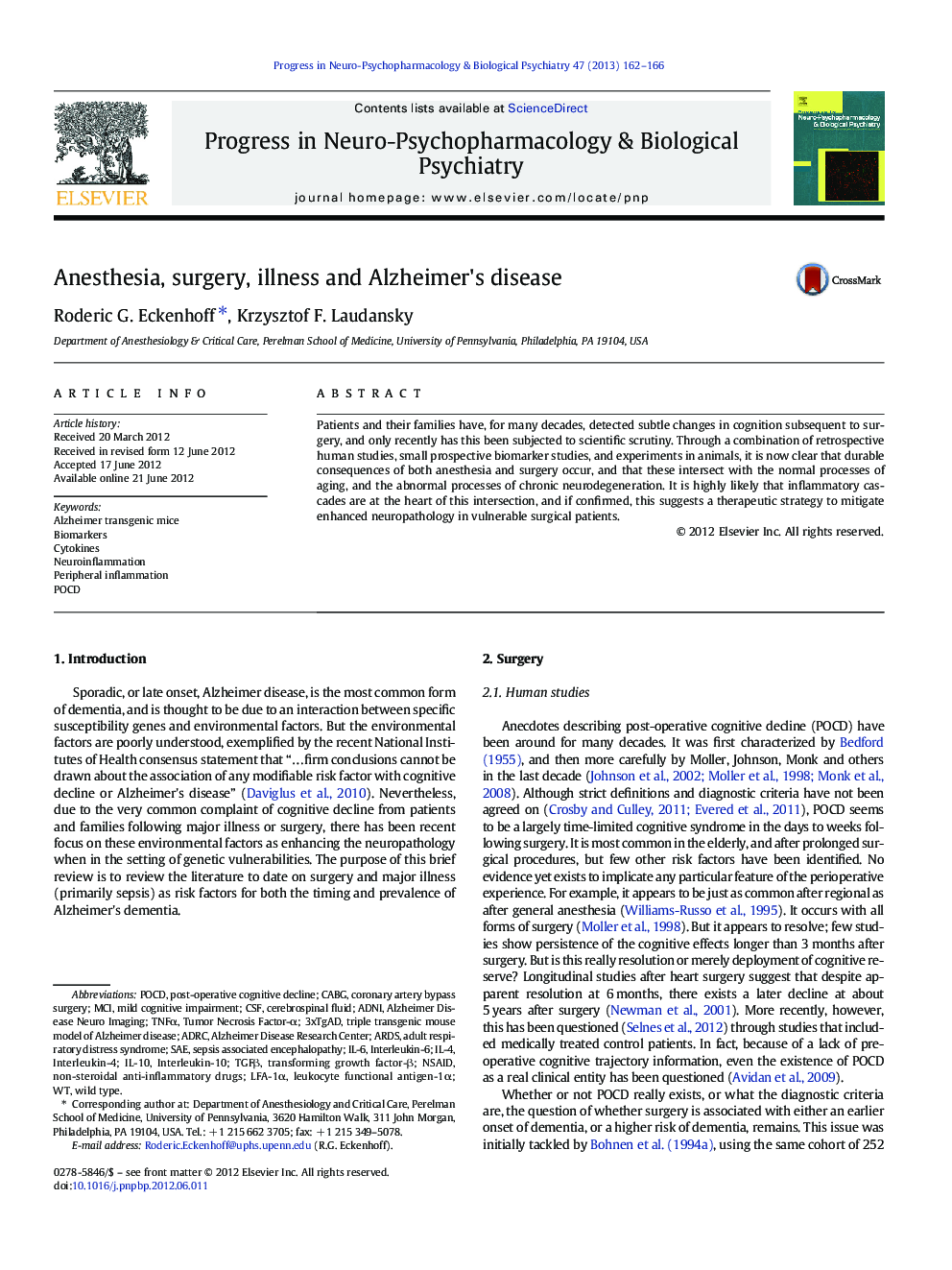| Article ID | Journal | Published Year | Pages | File Type |
|---|---|---|---|---|
| 2564885 | Progress in Neuro-Psychopharmacology and Biological Psychiatry | 2013 | 5 Pages |
Patients and their families have, for many decades, detected subtle changes in cognition subsequent to surgery, and only recently has this been subjected to scientific scrutiny. Through a combination of retrospective human studies, small prospective biomarker studies, and experiments in animals, it is now clear that durable consequences of both anesthesia and surgery occur, and that these intersect with the normal processes of aging, and the abnormal processes of chronic neurodegeneration. It is highly likely that inflammatory cascades are at the heart of this intersection, and if confirmed, this suggests a therapeutic strategy to mitigate enhanced neuropathology in vulnerable surgical patients.
► Major surgery and illness are associated with poor cognitive outcomes in the elderly. ► Anesthesia plays a smaller role than the surgery/illness itself. ► The surgical effect is likely due to peripheral and neuroinflammation. ► Therapy might include reducing inflammatory response to surgery and illness.
